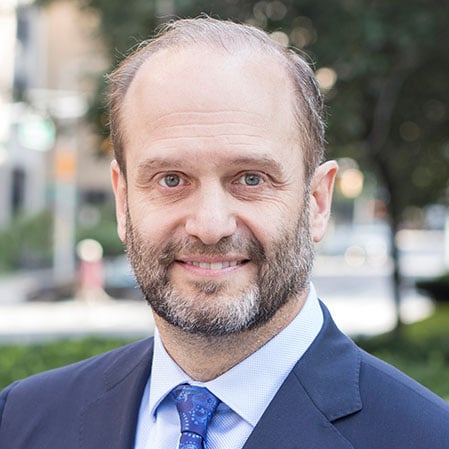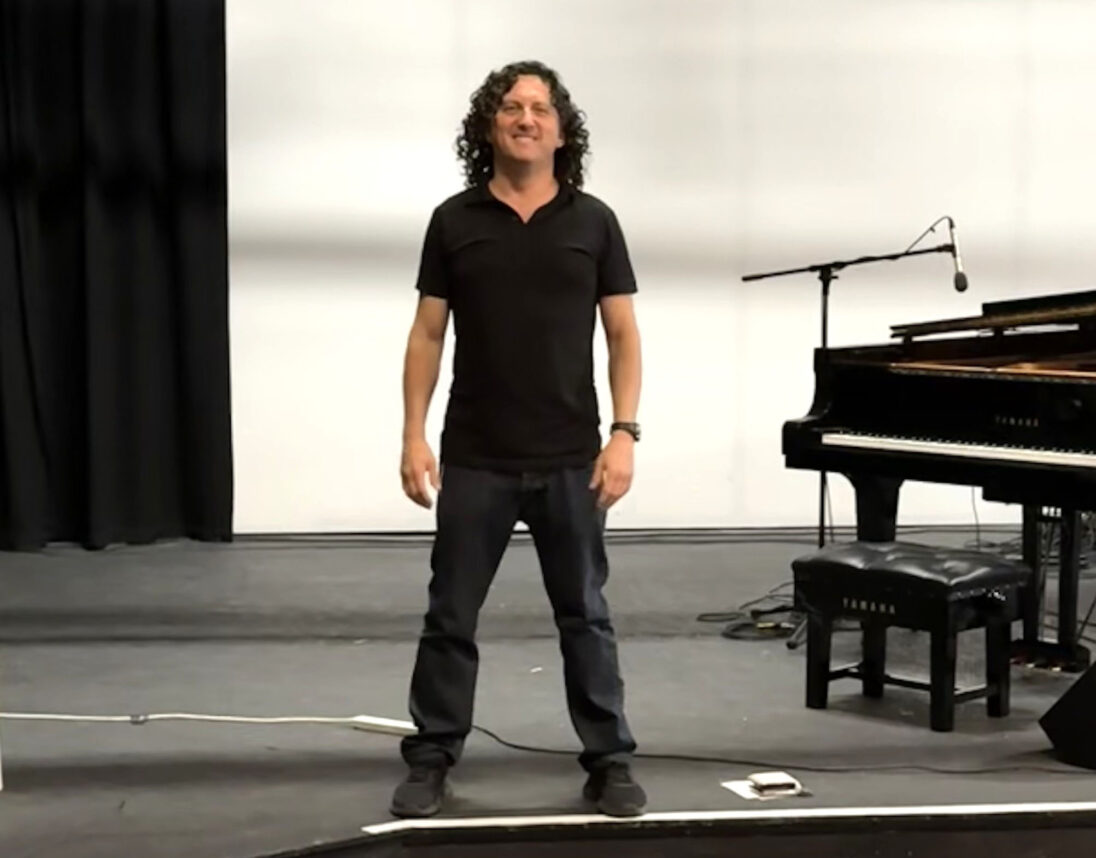
The Biblical phrase “a stranger and a resident” is fraught with meaning for the modern Jew. Rabbi Joseph Soloveitchik points out that this phrase is self-contradictory, and asks: “How can one be a stranger and a resident at the same time?” He explains that: “Abraham’s definition of his dual status… describes with profound accuracy the historical position of the Jew who resides in a predominantly non-Jewish society. He was a resident, …sharing with them a concern for the welfare of society, and contributing to the progress of the country in loyalty to its government and institutions. ….However, there was another aspect, the spiritual, in which Abraham regarded himself as a stranger. His identification and solidarity with his fellow citizens….did not imply his readiness to relinquish any aspects of his religious uniqueness. His was a different faith … which set him apart from the larger faith community.”
Soloveitchik reads the words “a stranger and a resident” poetically, and sees this paradoxical phrase as a reflection of the dual commitment that Modern Orthodox American Jews make, to be both a citizen and a Jew at the same time. The challenge for American Jews is to learn how to fully embrace their country and culture without assimilating away any of their spiritual identity.
However, a closer look at the text offers a different interpretation. This unusual phrase has to be seen in context. Abraham describes himself as “a stranger and a resident” when he petitions the local Hittites in the hope of acquiring from them a permanent family burial ground. Abraham is worried the Hittites might reject his request because he is a stranger; so he assures them he plans on taking up permanent residence and making this his community. In other words, Abraham is turning to the Hittites and saying: will you accept me, the stranger, as a citizen?
It turns out that not only did the Hittites accept Abraham, but they honored him as a spiritual leader. Abraham the wanderer and outsider is finally embraced. He is a stranger no more.
In many ways, this interpretation also reflects the history of the Jews in America. Jews have faced many challenges during their 370 years here; but eventually the Jews were accepted, and no longer needed to see themselves as both “a stranger and a resident.”
For a while, Jews felt completely accepted in the United States. Had you asked me 15 years ago, I would have told you that combating antisemitism was a waste of community money; Jew hatred was a thing of the past, not a challenge of the future. But I was wrong, very wrong.
Antisemitism has grown, year after year; and that came to a crescendo on October 7th. The Hamas attack has unleashed unprecedented hatred of Jews.
The American Jewish world has been left in shock. We found out that in many ways, we are still strangers after all these years.
Part of it has to do with a misapprehension about antisemitism. Many people assume that antisemitism is just another variety of xenophobia, and the hatred of Jews is much like the hatred of every other minority group. This is a partial explanation of antisemitism which is also partially correct. The Book of Esther does say that Haman demands the Jews be destroyed because their “customs are different from any other people.” Xenophobia is as old as humanity itself.
Jews have also assumed that antisemitism is mere xenophobia; and so they endeavored mightily to prove to the world that they are no different than others. During World War I, German Jews volunteered for the army in disproportionate numbers, eager to shed the accusation they were cowardly and unpatriotic; 12,000 German Jews died on the battlefield. (Unfortunately, this didn’t help; Jews were slandered anyway. And a few short years later, Germany elected Hitler.)
At times, Jews policed the behavior of other Jews in the hope of diminishing xenophobia. In the late 1800s and early 1900s, German Jews looked down on Ostjuden, the Jews from the East, who dressed differently, didn’t speak the vernacular, and lacked German refinement. This form of social pressure was not unique to Germany; in post-war America, many spoke about how they thought the oddly dressed Hassidic Jews got in the way of other Jews being accepted.
Even so, xenophobia is only a partial explanation for antisemitism. Jew hatred has raged in countries where no Jews live; at other times it has exploded in countries where Jews have assimilated and blended in. David Nirenberg, in his book Anti-Judaism, points out that hatred of Judaism often has a mythical quality, in which Judaism is seen as the polar opposite of one’s beliefs, the very definition of what one isn’t.
This type of antisemitism is ideological. Medieval Christians didn’t just see Judaism as a competing religion; Judaism was seen as containing noxious beliefs that could ruin the soul. One need not be Jewish to be a victim of this type of anti-Judaism; in post-inquisition Spain, Christian thinkers would often malign the other as being “Jewish” for having the wrong ideas. For Communists, Jews were predatory capitalists; for Fascists, Jews were the vanguard of Communism. Judaism became the deviant philosophy against which everyone contrasted their “true” beliefs.
Nirenberg points out at the end of the book, which was published in 2013,
“We live in an age in which millions of people are exposed daily to some variant of the argument that the challenges of the world they live in are best explained in terms of Israel.” This reality was already evident then; it is ubiquitous now. Israel has, to borrow Jacob Talmon’s phrase, become “the Jew among the nations,” the devil which defines what deviance is.
Anti-Zionism is an ideology; and like most ideologies, it is disseminated by the intelligentsia. The hatred for Israel that is roaring through college campuses is founded on the belief that Israel is the ultimate colonial state, the very incarnation of centuries of Western racism and exploitation. Considering Israel the echt-colonial state may seem absurd to anyone well versed in 3,800 years of Jewish history in the Holy Land. But such is the reality of myths; they need no reality. This new form of anti-Judaism means that the plight of the Palestinians is looked at with a microscope, while what happens to the Rohingyas or the Uighurs is barely worth anyone’s attention. Such ideologies are uncompromising; the thought of offering any sympathy for kidnapped Israelis is beyond the pale.
One can reasonably discuss how, on the margins, anti-Zionism and antisemitism are not fully identical. But without a doubt, the myths that drive contemporary anti-Zionism are one and the same as the myths that lie behind antisemitism. And as we have seen over and over again, even the most carefully crafted protestations of anti-Zionism rapidly morph into antisemitism. This is what is happening on college campus after college campus, where harassment of Jewish students is an everyday event, and death threats and assaults are becoming too common an occurrence.
Jewish students are feeling betrayed. They can’t believe that their own friends rushed out immediately on October 8th to show solidarity with the murderers of their brothers and sisters in Israel. And this betrayal goes all the way to the top, nurtured by professors and enabled by administrators.
This betrayal is not just a betrayal of Jewish college students; it is a betrayal of the American Jewish dream. After Jews immigrated to this country, it was at these very same universities that they found the tools to achieve success. The children of Jewish strangers from Europe and the Middle East were able to enter the mainstream of American life due to these universities. Just a few decades ago, these campuses are where Jews shed their past as strangers.
Now that’s no longer true. On October 7th American Jews woke up to find out that they are strangers once again.
Many Jews feel alienated right now, out of place in their workplaces, universities, and even in their favorite coffee shops. Like Abraham, Jews are once again wondering if they belong here.
But the story doesn’t end here. What is remarkable is how many Jews have gotten involved in helping Israel and combatting antisemitism. Young and old, they will organize dinners at Hillels and candlelight vigils at City Hall; they will march on Washington and deliver supplies to Israel. They will stand up for Israel and stand against antisemitism. Unlike Abraham, these Jews won’t ask for acceptance; they will demand it.
And no one is going to tell them they don’t belong.
Rabbi Chaim Steinmetz is the Senior Rabbi of Congregation Kehilath Jeshurun in New York.
























 More news and opinions than at a Shabbat dinner, right in your inbox.
More news and opinions than at a Shabbat dinner, right in your inbox.